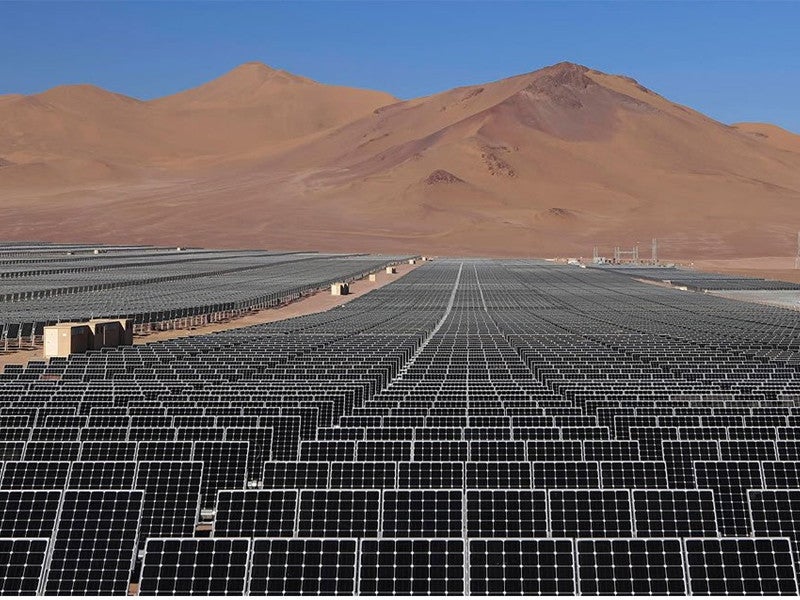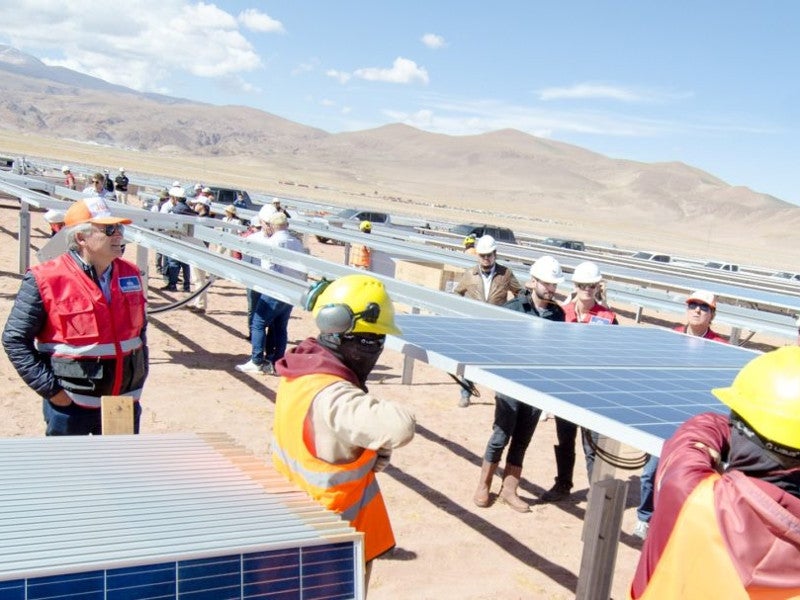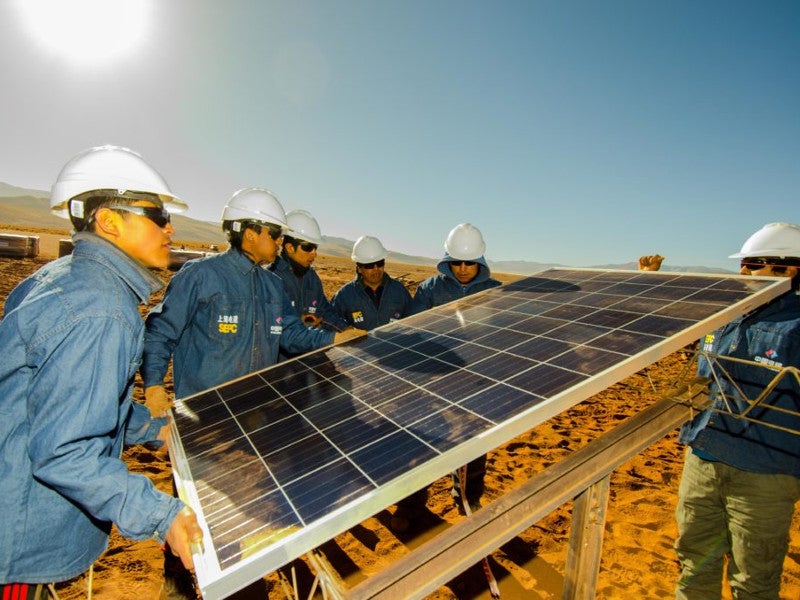The Cauchari solar project in Argentina’s northernmost province Jujuy is one of the biggest photovoltaic (PV) solar power projects in South America. Located at an elevation of more than 4km above the sea level, it is also the world’s highest-altitude solar power project.
The Cauchari solar park is being developed in phases using Chinese funding and technology, under the belt and road initiative (BRI).
Construction on the 300MW Cauchari solar project phase one was started in October 2017, with an investment of £301m ($390m). The phase one was inaugurated after the completion of trial run in October 2019.
It is expected to begin commercial operations upon the completion of associated transmission infrastructure in 2020.
Production and expansion
The 300MW Cauchari solar farm, with an estimated lifespan of 25 years, is expected to generate approximately 660GWh of clean electricity a year, which will be enough to power more than 160,000 households.
It is further planned for a 200MW expansion in the next phase to bring the total capacity to 500MW, which will be enough to meet the electricity needs of approximately 260,000 Argentine homes.
A framework agreement for the expansion was signed with the same Chinese contractors in December 2018.
Cauchari solar project background
The Jujuy provincial government won the tender through state-owned Jujuy Energía y Minería Sociedad del Estado (JEMSE) for the 300MW Cauchari solar park in the first round of Argentina’s Renewable Energy Auction (RenovAr) in 2016.
JEMSE engaged Chinese firms PowerChina and Shanghai Electric Power Construction (SEPC) to build the solar park, under a deal signed in the G20 Summit held at Buenos Aires in 2017.
Cauchari solar project location and site details
The Cauchari solar power facility is located at 4,020m above sea level in the Puna plateau near Cauchari, Jujuy, Argentina, that borders Chile to the west and Bolivia to the north.
The highlands of the Puna plateau possess one of the best solar resources in South America. The Cauchari solar project area features solar radiation levels of more than 2,600kWh/m².
A 50km-long access road has been constructed for the PV solar park located atop a remote mountain peak.
Cauchari solar park make-up
Spread over 800ha, the 300MW Cauchari solar power complex comprises three PV fields, namely Cauchari I, Cauchari II, and Cauchari III, each with an installed capacity of 100MW.
The solar park has been developed with a total of more than 1.18 million PV solar panels mounted on 152,000 steel piles, whose length ranges between 2.6m and 3m.
The key equipment, including the solar modules and inverters, for the project were supplied by Chinese companies.
Financing
The £301m ($390m) Cauchari solar power plant is 85% financed through a sovereign debt credit granted by the China Eximbank and 15% through the green bond issued by the province of Jujuy.
The total project cost including that of the transmission infrastructure as well as the planned expansion of the solar park is estimated to be £425m ($551m).
China Eximbank provided £256m ($331.5m) of loan, which is to be repaid in 15 years at an annual interest rate of 3%, while the remaining £169m ($220m) is planned to be arranged through the green bond issued by the Jujuy provincial government in the international market.
Power transmission and off-take
The electricity generated by the Cauchari solar project will be fed into the Argentine Interconnection System through a connection to the 345kV transmission line that links the Chilean town Andes with Cobos in Argentina’s Salta province.
A new transformer station at Altiplano is being built with an estimated investment of £39m ($50m) as part of the project.
The electricity from the Cauchari solar park will be sold to Argentina’s electricity wholesale market administrator Compañía Administradora del Mercado Mayorista Eléctrico (CAMMESA) at a price of £46 ($60) per MWh under a 20-year power purchase agreement (PPA).
Contractors involved
PowerChina and Shanghai Electric Power Construction (SEPC) were engaged as the engineering, procurement, and construction (EPC) contractor for the Cauchari solar project.
Talesun Solar, a solar panel manufacturer based in China, provided the PV solar modules as well on-site installation management services, while Huawei Technologies supplied inverters for the project.
Prysmian Group was contracted for the supply of cables, accessories, monitoring systems, and services, as well as project supervision services for the Cauchari solar park in August 2018.
The contractual scope included more than 3,600km of cables, 1,100 medium-voltage accessories, and connectors from its Tianjin and Yixing plants in China.
Other contractors and consultants involved in the project were TCI-Gecomp, Studio Tecnico BFP, and Enertis.





